When we talk about SEO, Google comes to mind, for most search engine marketers. And, it makes sense. If you’re able to please the search giant, other search engines will follow along and send traffic to your website.
Most marketers don’t consider that the second most used search engine can also be a lucrative channel. Here’s why Bing search results optimization can be a real treat for you…
Since all marketers go after Google, Bing has lower competition. And, it has a decent market share, at 21.3%, in the US (including Yahoo search that’s powered by Bing). Further, Yahoo-Bing network also has an exclusive audience in most verticals.
Bing traffic also might have a lower bounce rate. For Matthew Woodward, Bing traffic had higher quality than Google. And, the visitors viewed more pages and clicked more affiliate links, as well.
And most search engine optimization techniques remain the same as they are for Google (although the algorithms for both the search engines are different). So, you can eat the Bing pie with less effort, given that Bing is much more open about its ranking factors, as compared to Google.
Now that you’re aware of the numerous advantages of performing Bing SEO, let’s get started with putting your best foot forward on Bing.
The role of backlinks on Bing
For appearing on the first page of Google, links continue to play a major role. On Bing, there’s no conclusive evidence and study on how important a role that links play across different industries. Most search engine optimization marketers have shared their personal take on backlinks. Let me tell you what we know.
As per a study of 300,000 websites, by Search Metrics:
- the number of backlinks has a high correlation of .29 to how a site ranks,
- 52 to 53% of the backlinks of websites that ranked among the top 30 Bing results contain keywords in the anchor text (this is 10% more than Google),
- 2% of the backlinks to the pages that ranked under the top 30 on Bing contain a stop word (on Google, this is 10%).
So, while on Google, quality links from authoritative domains alone should do the trick. Bing requires you to grow your link profile with do-follow links and exact match anchor text (containing your target keywords). Generally, the quantity of backlinks trumps the quality on Bing.
Here’s official commentary on backlinks, from the Bing Webmaster guidelines – “Links pointing to your site help Bing discover new pages on your site. Traditionally, it is also regarded as a signal of popularity. The site linking to your content is essentially telling Bing that they trust your content.”
There are these two types of backlinks that Bing absolutely favors:
- Organic links from relevant and trusted websites that drive real users to your site. Particularly, .edu, .org and .gov links strike gold on Bing.
- Bing favors links from old domains, as it considers age to be a sign of trust. This also makes Bing more susceptible to spam. Len, from Telapost, manages a few sites from the 1990’s and they sit right at the top of Bing search results.
As I’ve told you before, the best links also drive referral traffic to your website. But, those are also the toughest links to get.
There’s another major factor that Bing takes into account, besides backlinks, for ranking pages and we’ll talk about that factor later.
The abusive kinds of links you must avoid
Not a different story. Like Google, Bing also wants you to stay away from reciprocal links, paid links, link schemes, links from hacked websites and the like. Otherwise, your website might get de-listed from the Bing search engine index.
If you find spammy websites linking to your website, then first try to take them down. If the webmaster of the linking website doesn’t honor your request to pull a link, then you should disavow the link here.
On-page stuff matters more: exact match domains, title tags and high-quality content
While Google has developed a pretty sophisticated search algorithm, Bing still relies on some of the old factors. You might feel like you’re optimizing your website for the Google algorithm 5 years ago.
Let me tell you the specific, on-page aspects that especially matter for ranking on Bing.
1. Exact Match Domains
When you search for the keyword “best swiss knives” on Google, you get the following results. Besides sponsored results, you can see a knowledge graph result occupying considerable real estate at the top.
On Bing, however, the first result is from the domain “bestpocketknifetoday.com.” This signals traces of exact match domain as a key ranking factor in Bing search engines. On Google, you won’t find this result in the top 10.
I don’t recommend that you buy a new exact domain just for ranking in Bing and Yahoo results. It’s just one of those factors that you’ll have to pass by.
2. Exact keyword usage matters in H1 and H2 title tags, as well as in your meta description
Just like the domain, using your EXACT keywords in the Heading 1 and Heading 2 tags will help you with your Bing rankings. Unlike Google, Bing is about exact word usage, rather than the context and semantics.
I would still recommend that you use keywords naturally in your content, as much as possible.
You should also sprinkle your keywords naturally in the alt tags and meta description.
William Kammer had a client who wasn’t ranking well in Bing and Yahoo, but doing quite well in Google. On further analysis, they found that their website was lacking meta keywords and descriptions. So, they optimized the website for keywords. And, here’s the uplift in SERP rankings that resulted in Bing and Yahoo.
While Google has dismissed meta keywords and description as a ranking factor, a compelling title and meta description can help in lifting your CTR. And, it will indirectly affect your Bing search engine rankings.
3. Write high-quality content
Bing loves websites that have unique and engaging content that address the queries of the reader. Now, that doesn’t mean that you need to stuff keywords repeatedly into your content, to increase the keyword density for your target keyword.
As per Bing, here are the 3 pillars of quality content.
If we break it down, Bing wants you to:
- Clearly mention the author of the content and state the source of your information,
- Address the query in detail and ensure that it helps the users,
- Format and present your content well, with a clear distinction between ads and your content.
Here’s a content example that doesn’t make the cut for Bing. The content doesn’t list an author. The page is full of ads that dominate the fold and appear even before the main content. Further, the ads can easily be confused with the main content.
Besides the 3 pillars, Bing loves multimedia and it’s concerned about the “aesthetic appearance and functional ability of a website for the end users.”
As you might know, Google likes it simple, with text and HTML. It’s bad at reading flash content. So, I wouldn’t recommend that you put in extra effort and create a Flash-based website, just for Bing. Flash is an easily accessible webmaster tool to improve search results.
You can still create a richer experience for your readers, by peppering images and videos in your content. As an example, let’s compare the image search results for the keyword “shoes for men” in Bing vs. Google.
If you look at the Google results, you’ll simply be shown many images that you can scroll through. A few contextually related image searches are thrown in at the top.
Now, compare that with the Bing results, where the image results are organized better with relevant searches that I might be interested in. This becomes a better user experience search result.
If you’ll scroll down, you’ll even find suggestions for refining your search and related searches.
So, your brand might get an uptick in Bing image search results, by adding relevant and elegant images in the content.
Don’t forget to add descriptive alt text to your images, to get that additional image search traffic.
Bonus: Use schema markup on your website
In 2011, Google, Yahoo and Microsoft announced their alliance to make search listings richer in detail, through structured data. Essentially, schema markup is a way to help search engines understand your content and thus provide information-rich search results.
I’ve already written in detail about schema markup and I highly recommend implementing it on your website. It will help in raising the CTR of your search results. And, as per a Bing blog post, your opportunity for inclusion will also increase.
Here’s the Bing Markup Validator tool, to verify the markup that you’ve added to your pages.
There are a variety of Bing webmaster tool options to help you directly in Bing search efforts.
Social media is a THING in Bing’s algorithm
Remember how I earlier told you that there’s a factor, besides backlinks, that plays a vital role in the Bing algorithm?
I was talking about social media signals.
Bing has officially stated that they use social shares to understand if a page is popular among users. If your content is shared widely by users, it sends positive signals to Bing. In the long run, your organic rankings might see an uptick, due to your social influence.
We even have a documented example:
In a study by Search Metrics, social signals correlated with higher organic rankings.
But, Bing also advocates against shady social media tactics that allow you to gain too many (fake) followers, too fast.
As a rule of thumb, for Bing search results, or any search engine for that matter, buying social media followers will not help you.
Leverage Bing Webmaster tools
If you haven’t already, then set up your site inside the webmaster tools, straightaway. It’s a great resource to find out the keywords that you rank for, your indexed backlinks, spammy links to disavow and much more.
So, sign up for a free Bing webmaster tool account and add your website.
If you want, you can submit a sitemap and subscribe for alerts about your website.
You’ll be asked to verify your website, by placing an XML file on your web server or copying a meta tag to your website or adding a CNAME record to your DNS.
Once verified, you’ll see a dashboard with important details about how Bing sees your website.
And, you can run your website through a suite of diagnostic tools, like the SEO Site Analyzer and Keyword Research tools. You can even ask the Bing bot not to crawl your website during the peak traffic times.
Here are the results of checking the mobile friendliness of my website. The only issue my site has is that resources on the page are blocked by robots.txt configuration.
For a more thorough overview, refer this detailed guide on Bing webmaster tools.
Care about the user
I have repeatedly suggested that you write quality content?
There are a couple of more pieces that Bing uses to complete the puzzle – Context and Relevance.
Before you create content, perform keyword research and understand the intent behind the search query. For your existing content, modify your on-page keywords and SEO, only where it makes sense – not just for ranking higher in Bing, since the search engine likes keywords in the title and meta description.
Bing is also getting smarter, everyday, at understanding queries. Recently, they shared their intelligent autocomplete update for movie and academic queries. Here’s a breakdown of how they see the query “machine learning papers by andrew ng in nips.”
Keeping the users happy and engaged is of prime importance for all businesses. So, if your website quickly scares off your visitors with poor content, then it sends a wrong signal to Bing. Again, as with Google, your meta description or meta tag helps in search results.
If a search query is local, then make sure that you get a well-optimized Bing Place local business listing, using Bingplaces. Here are the search results for “los angeles haircut” (just below the ads). If you have an optimized listing and get a few reviews, then you’ll get a spot right there.
Similarly, a good design, site speed and clean navigation are also important. They will contribute towards upping your Bing rankings.
Conclusion
SEO for Bing is not that different from Google. Both Bing and Google advocate high-quality content on their search engines. But, there are a few other specific aspects that need closer attention in Bing. One of them is the prominence of on-page SEO. I have touched upon the others as well, in this article.
And, now that you know about it, would you not want to optimize your site for Bing? If you have already optimized your site for Bing, then let me know the percentage of traffic it has contributed to your site.

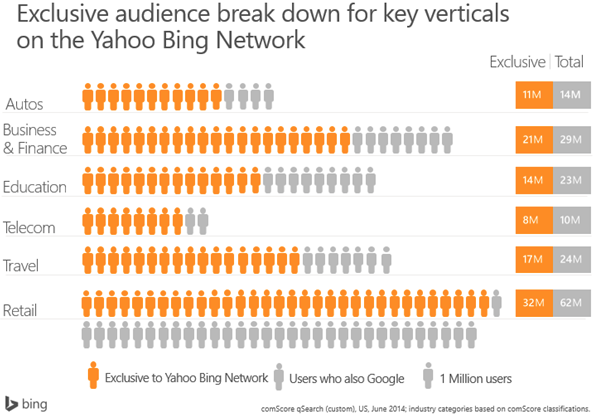

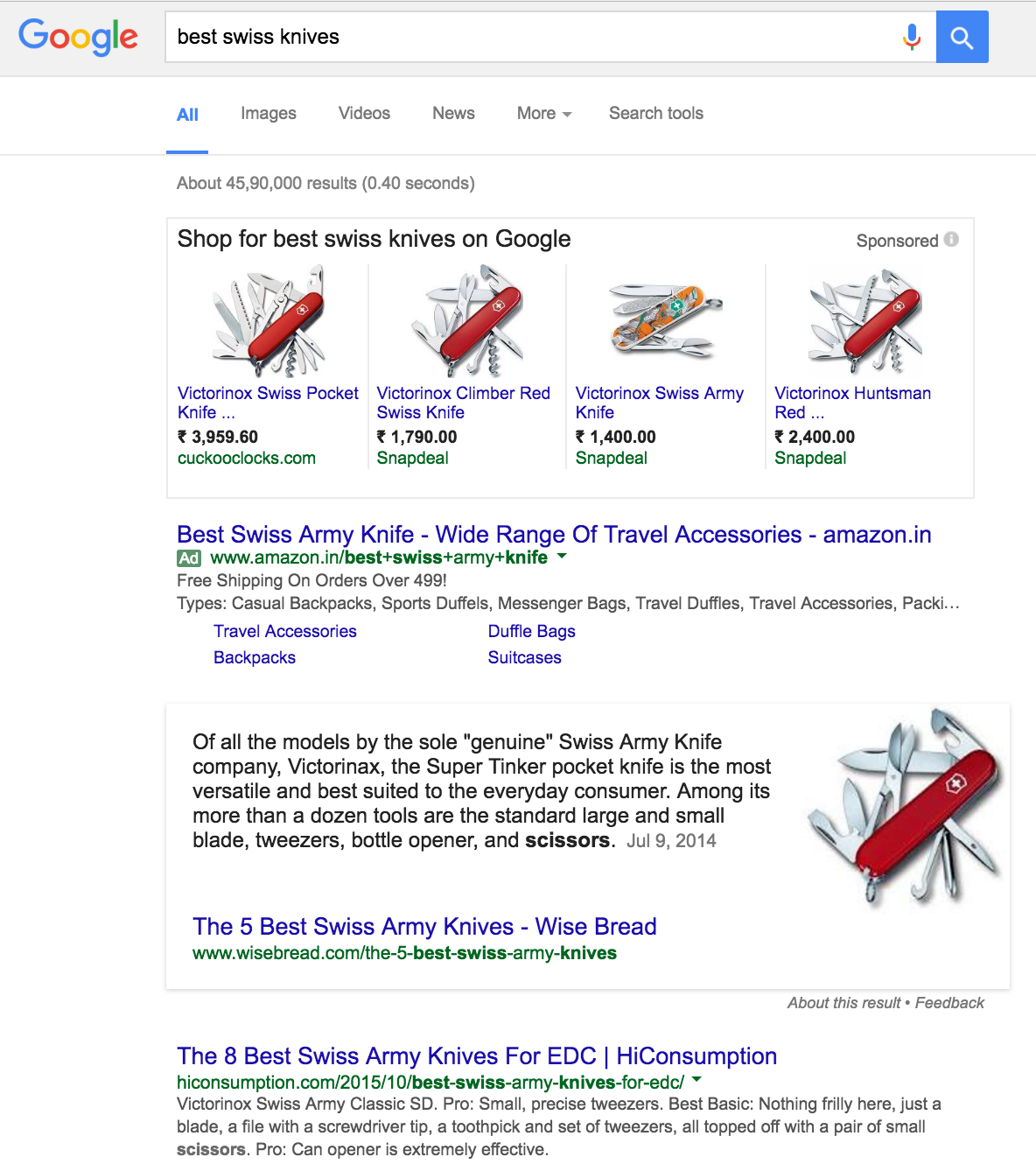
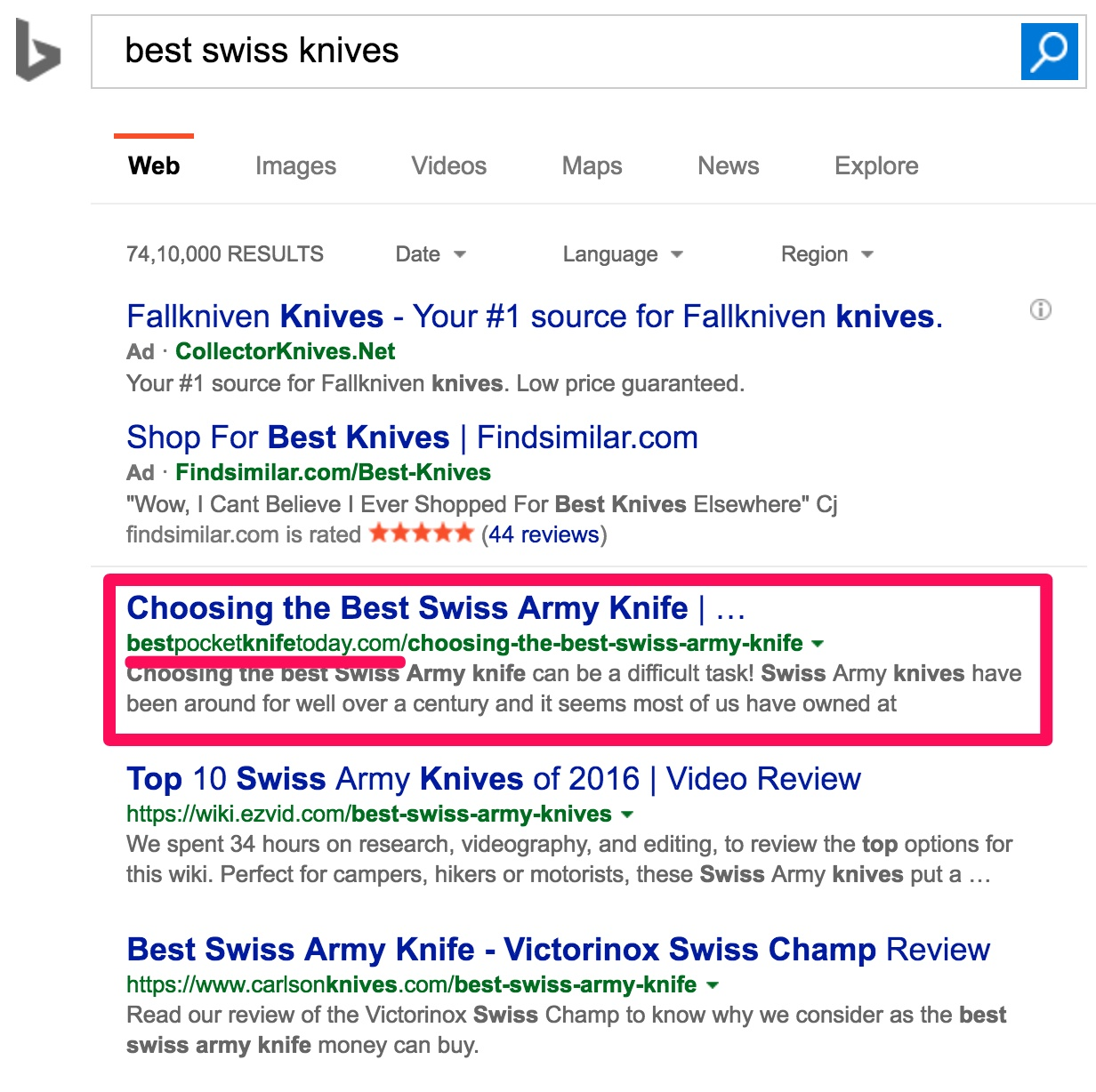
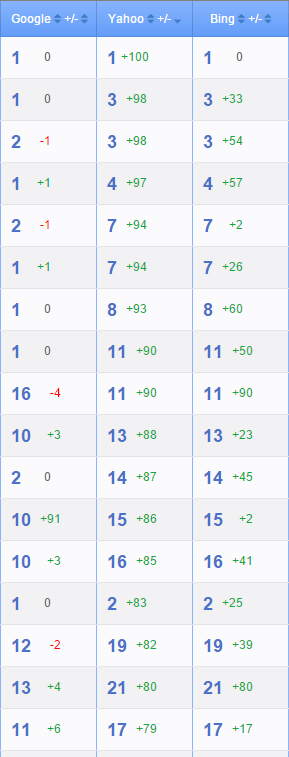

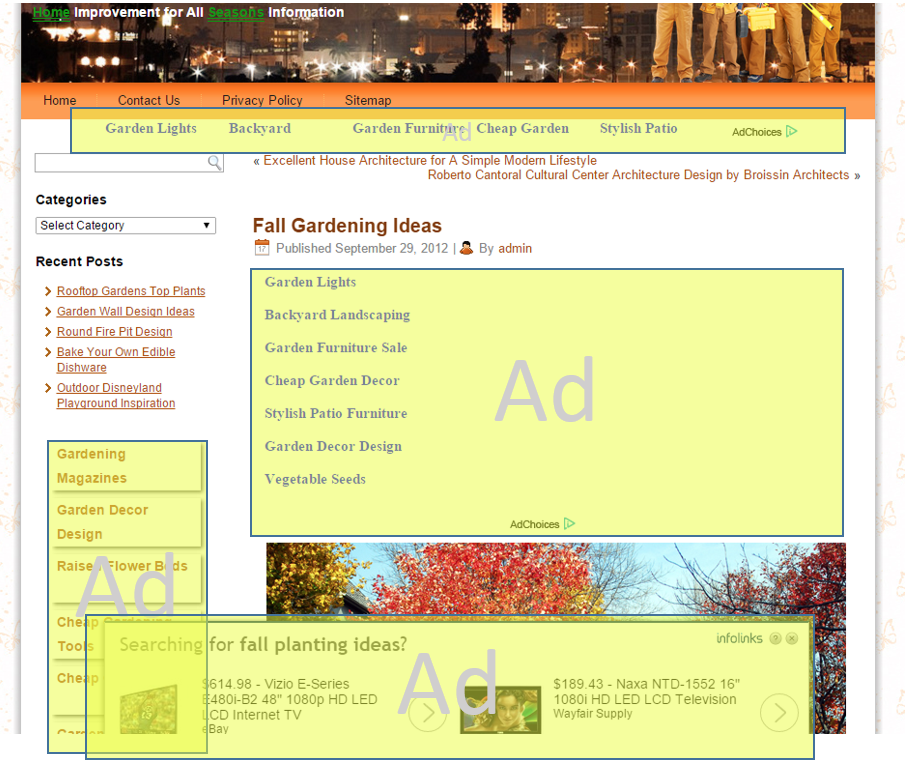
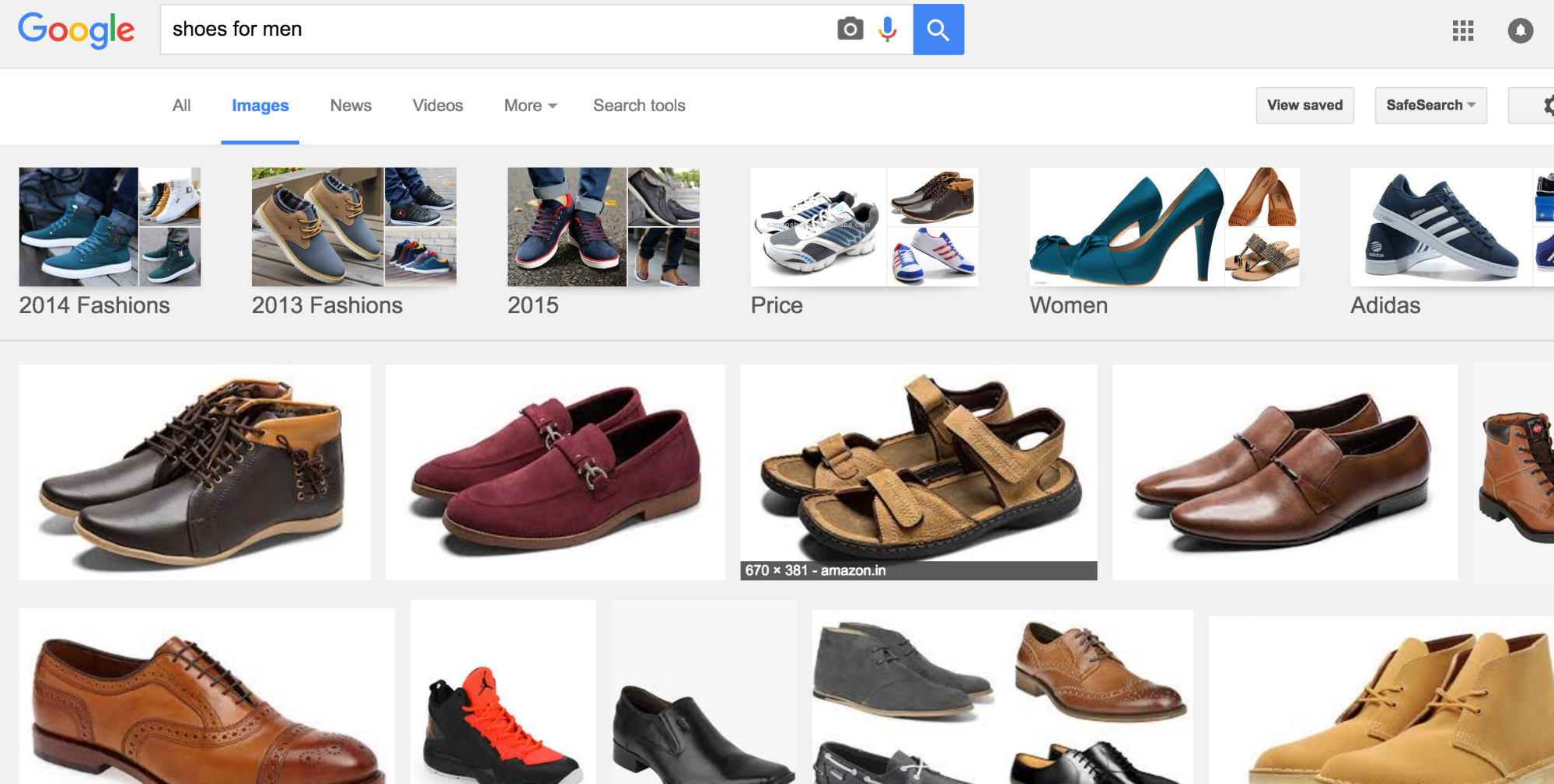
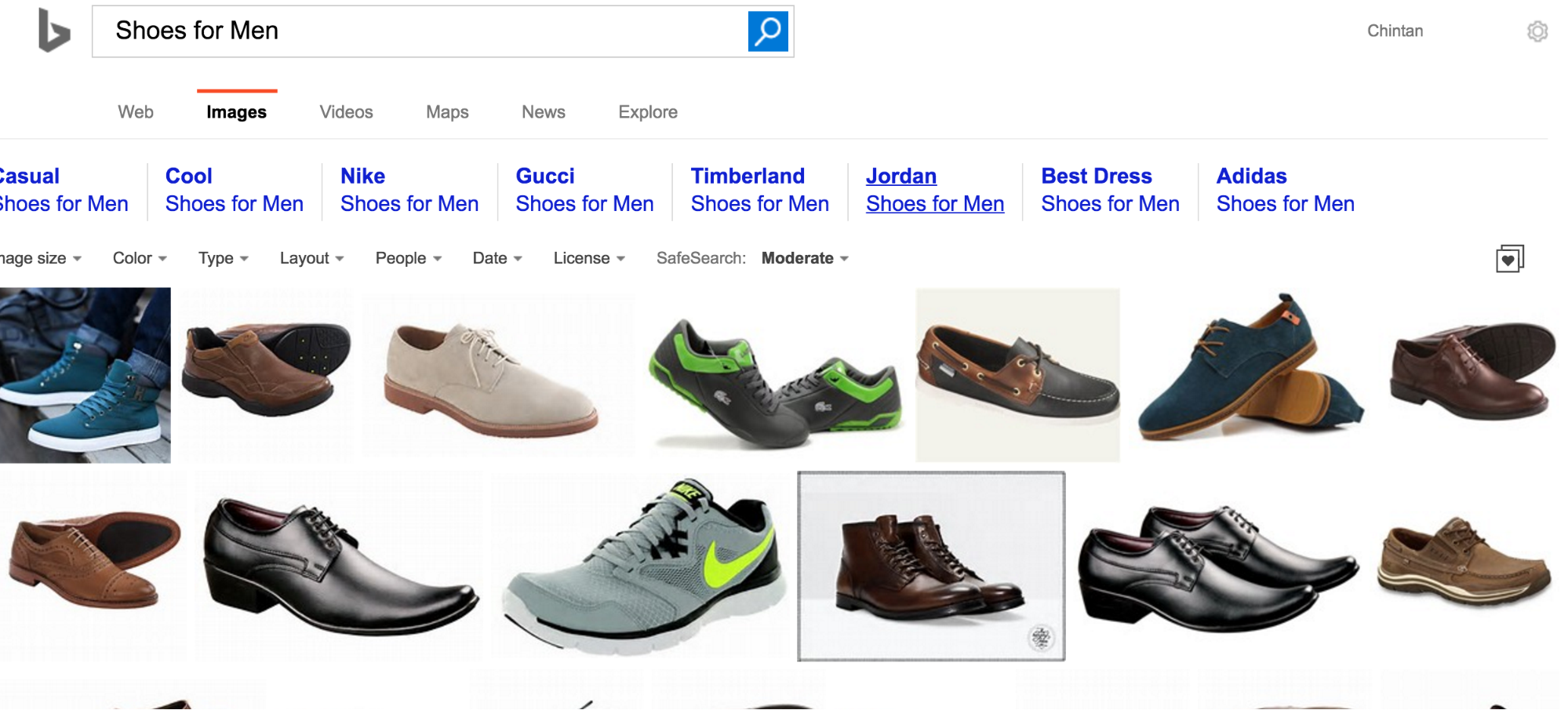

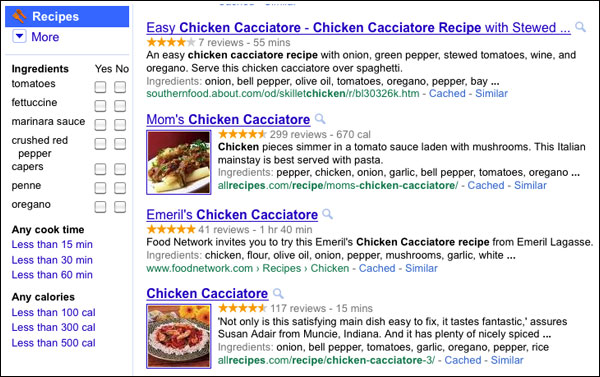
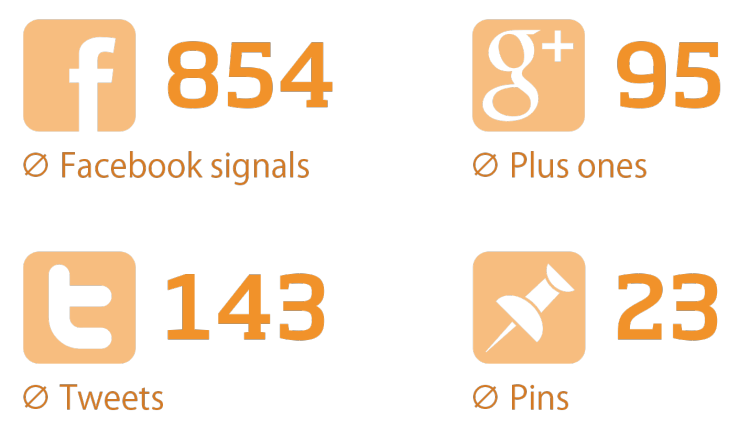


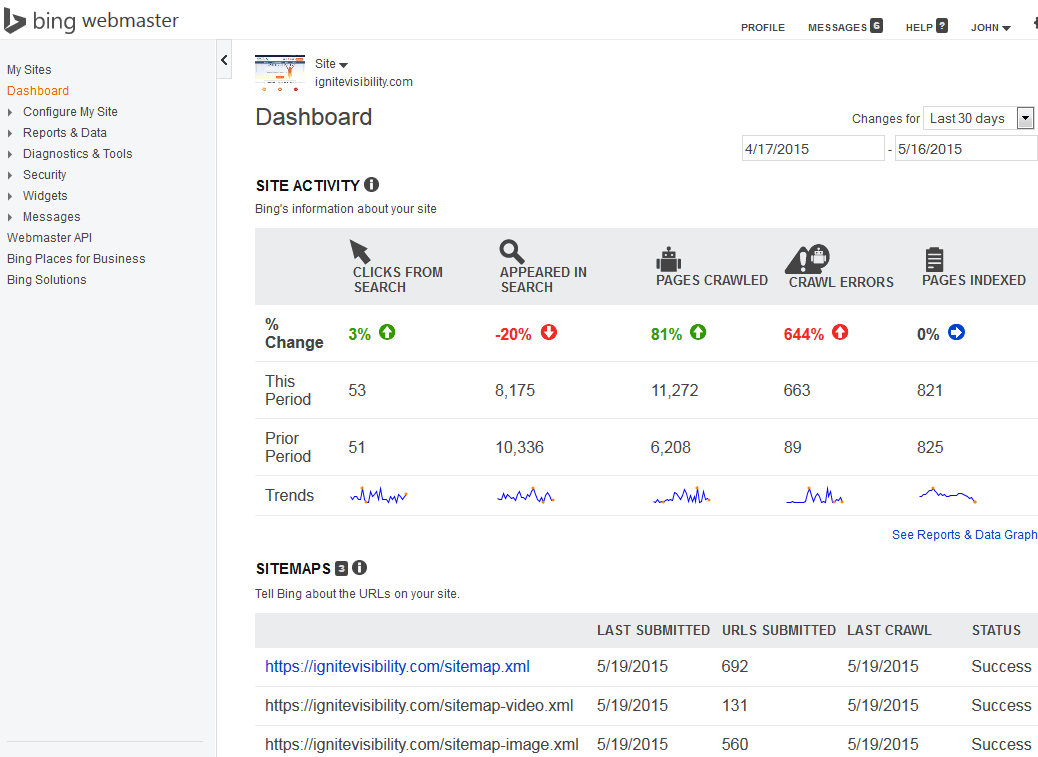
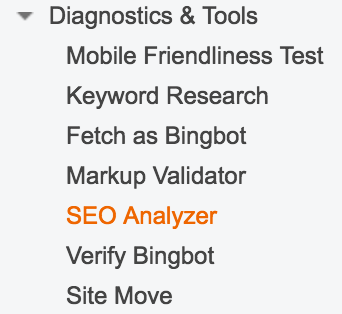
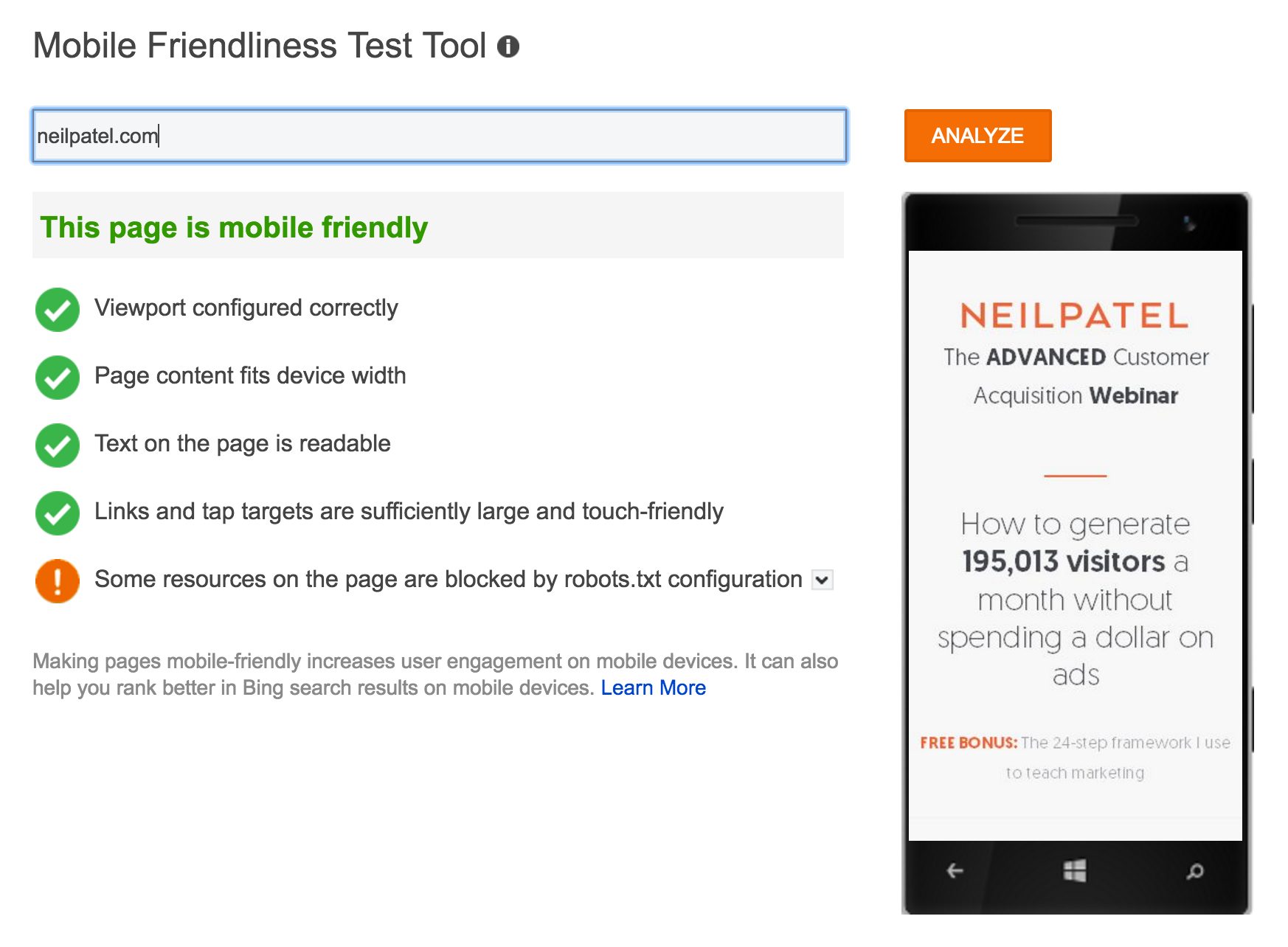

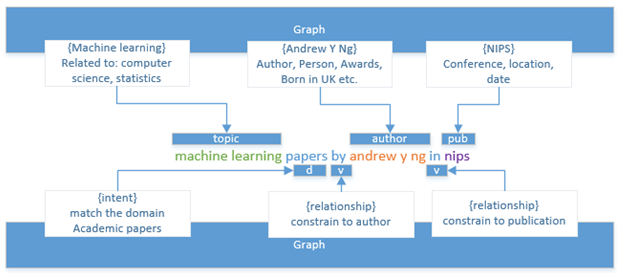
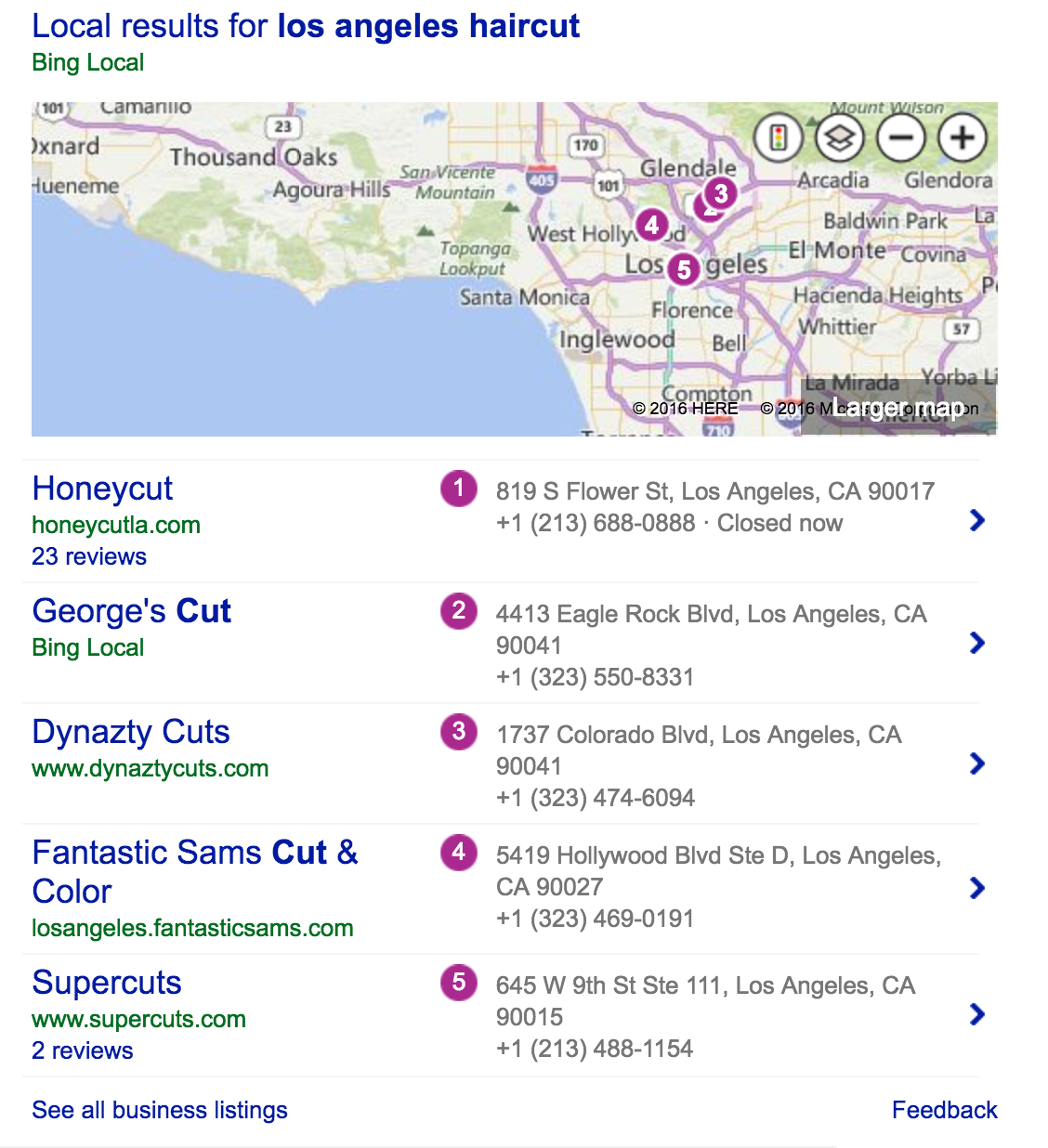
Comments (84)